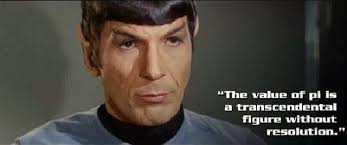It’s actually fuzzy to me. It seems it’s very typical on carnivore to feel a sudden stop. You are hungry enough and/or eat with good appetite (appetite is the desire, hunger is well, hunger, they act very independently in my case) and suddenly you can’t eat another bite without forcing yourself. I have it sometimes and don’t another times on carnivore. I didn’t have this on my original keto. But I still feel the stages:
hungry -> not hungry but not satiated -> nicely satiated -> fully satiated -> too satiated (I am not very familiar with this)
But if I wait some minutes, the feeling can go backwards nowadays. I feel satiated too quickly but then my body realizes it’s still quite hungry.
I don’t know what is “full”, I use “satiation” but I do feel “full”. When I am fasting, I feel full but I can’t be that  “Stuffed” is quite full but abnormal… So I use “satiation”, feels better for me.
“Stuffed” is quite full but abnormal… So I use “satiation”, feels better for me.
And I don’t know what “filling” is. Water fills my stomach but it’s not satiating and satiation matters to me, not fullness. I can be super hungry while “full”. So I don’t do much with fullness just satiation.
[I have stomach fullness. I feel if my stomach is totally full (it takes a ton of food so I only had this when I ate 1.5kg vegetable dish or drank 2 l water) or not. I don’t feel if it’s empty unless I listen to it very very much, maybe? I don’t care about my stomach state, I ignore it. When I feel “full”, it’s not my stomach state unless it’s the above, quite extreme situation. But that’s a different full.]
And I don’t need to eliminate hunger as I am usually not hungry to begin with… But it happens during a meal, ideally. I use “need for food” instead of hunger but sometimes I get slightly hungry. But not nearly every day  When I last broke my 48h fast (I don’t do longer ones as I love eating and my body loves regular feeding), I felt zero hunger all the time, even in the end. I still can figure out if eating is a good idea.
When I last broke my 48h fast (I don’t do longer ones as I love eating and my body loves regular feeding), I felt zero hunger all the time, even in the end. I still can figure out if eating is a good idea.
So, I don’t wait for hunger and not always stop when I feel satiated. I need my food even when my body is confused due to some new or too effective woe. I rarely use even subtle force but I just don’t starve while feeling satiated (stupid thing). So I consider this very complicated and individual. Some people track and eat accordingly because they lack hunger and satiation signals, that is very unlucky IMO. But we gotta do what we gotta do. I met people who ate according to hunger and satiation and rapidly lost weight even in underweight state… We need food and the simple eat when hungry until satiated/full is simply not right for everyone. Some people would undereat, others would overeat even on keto. In my case, my food choices matter a lot. I can be always satiated with little and much food too.
If I am full, I don’t want eating, that’s it. But I can drink tea, that’s consuming something with flavor too 
Stupid and very much NOT hedonistic compulsions simply disappear when I eat very low-carb.
My signs usually have a very little correlation but there is a very strong correlation between satiation and appetite. Higher and higher satiation levels turn off my appetite more and more (if I had any). Usually simple satiation is enough and only the worst compulsions allied with carbs can break through full satiation. That’s a tad uncomfortable but I can’t not stop there. I am not among the poor souls who keep eating when it’s painful… I need at least zero appetite to eat, negative just won’t do and I have that when a bit too full but usually way earlier.
But if I am full/fully satiated and I kinda would like to eat more but well, my state says hell no… Then I realize I messed up my food plan and I better choose something longer, more enjoyable or something next time. But I usually have absolutely no problem with it. And on extreme low-carb, eating is more like a chore quite often (but I am a newbie yet), I am almost happy if I can stop already even though my food is nice. I get satiated easily and I need the nutrients (well there is always the next meal but I have reasons I prefer OMAD now. if I eat little, I KNOW I will be hungry in no time again). It was VERY different with significantly more carbs… Like, 40g (ketosis for me).
But it’s not all about the carbs though, not even for me and I am quite sensitive to carbs, they mess up many things. Certain very low-carb (possibly zero carb) items just aren’t satiating, it’s individual, obviously. So I can eat a ton of them and still want to eat more (but preferably something that helps with satiation). I learned to minimize those items - or face the consequences. But I can’t eat even them when really full. I need to wait a few minutes, at least.

 “Stuffed” is quite full but abnormal… So I use “satiation”, feels better for me.
“Stuffed” is quite full but abnormal… So I use “satiation”, feels better for me.